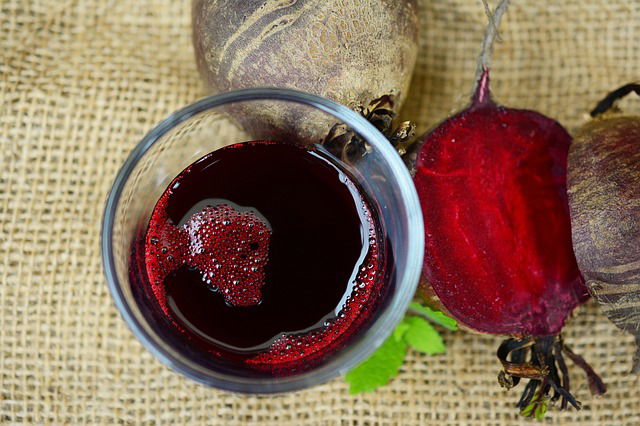
Compared with apple juice and orange juice, beetroot juice is not popular.
To some people, its color and taste may be not very nice.
But recent research has shown that beetroot juice has quite special healthy benefits, which you cannot find in orange and apple juice.
In one previous study, we mentioned that beetroot juice can help improve the exercise endurance in people with heart failure.
But beetroot juice is not only do wonders to heart failure patients, it is also beneficial to other populations.
One recent study from Wake Forest University shows that drinking beetroot juice before exercise can improve performance in older people. It looks like the brain becomes younger.
The study tested 26 men and women age 55 and older. These people did not have regular exercise, and their blood pressure was high, and they used medication to control it.
In six weeks, the participants drank a beetroot juice supplement or a placebo supplement three times a week 1 hour before a moderately intense, 50-minute walk on a treadmill.
The difference between the beetroot juice supplement and the placebo supplement is that beetroot juice contains high level dietary nitrate.
The result shows that people drinking beetroot juice supplement had better exercise performance, mirroring the operation of a younger brain.
The researchers suggest that dietary nitrate can be converted to nitric oxide when consumed, which can increase blood flow in the body and help with exercise.
In another study from Wake Forest University, the research group finds that beetroot juice can improve exercise function in people with COPD.
Beetroot juice can also benefit people with high blood pressure.
In a study published in journal Hypertension, researchers find that drinking a cup of beetroot juice every day can help reduce blood pressure.
In the small study, the team tested 8 women and 7 men when had a systolic blood pressure between 140 to 159 millimeters of mercury (mm Hg).
These people did not have other medical complications and were not taking blood pressure medication.
They drank 250 mL of beetroot juice or water containing a low amount of nitrate and had their blood pressure monitored over the next 24 hours.
The researchers found that compared with the water group, people in the beetroot juice group reduced their systolic and diastolic blood pressure.
The effect was strongest 3-6 hours after drinking the juice but still observable even 24 hours later.
Based on the results, the team suggests researchers find that people with high blood pressure who drank about 8 ounces of beetroot juice can experience a decrease in blood pressure of about 10 mm Hg.
Copyright © 2018 Knowridge Science Report. All rights reserved.



